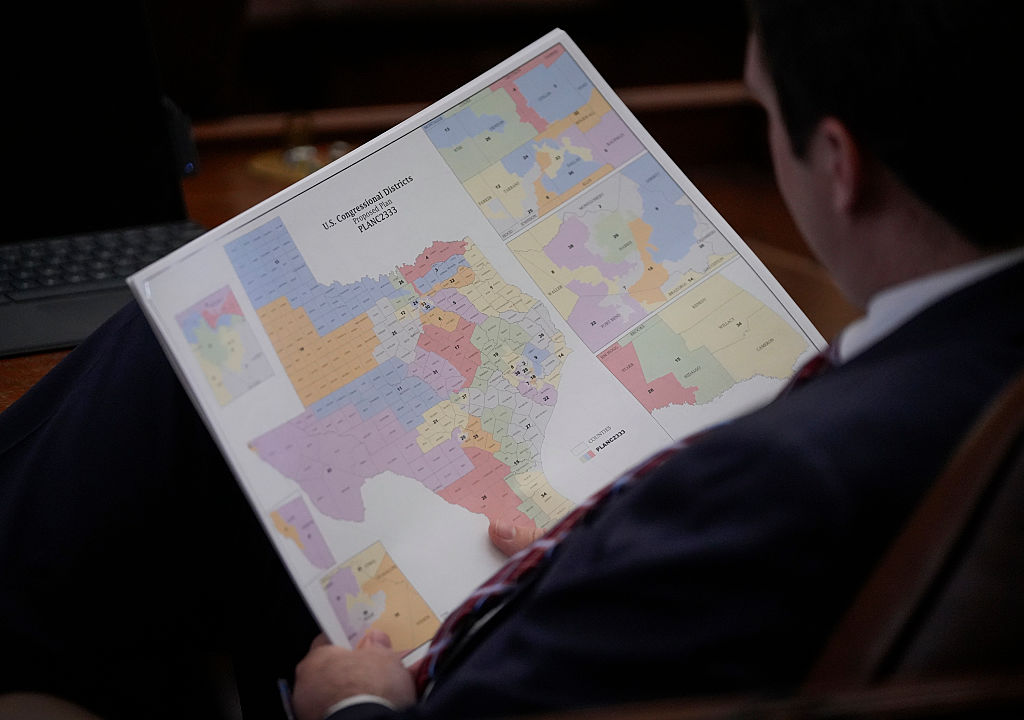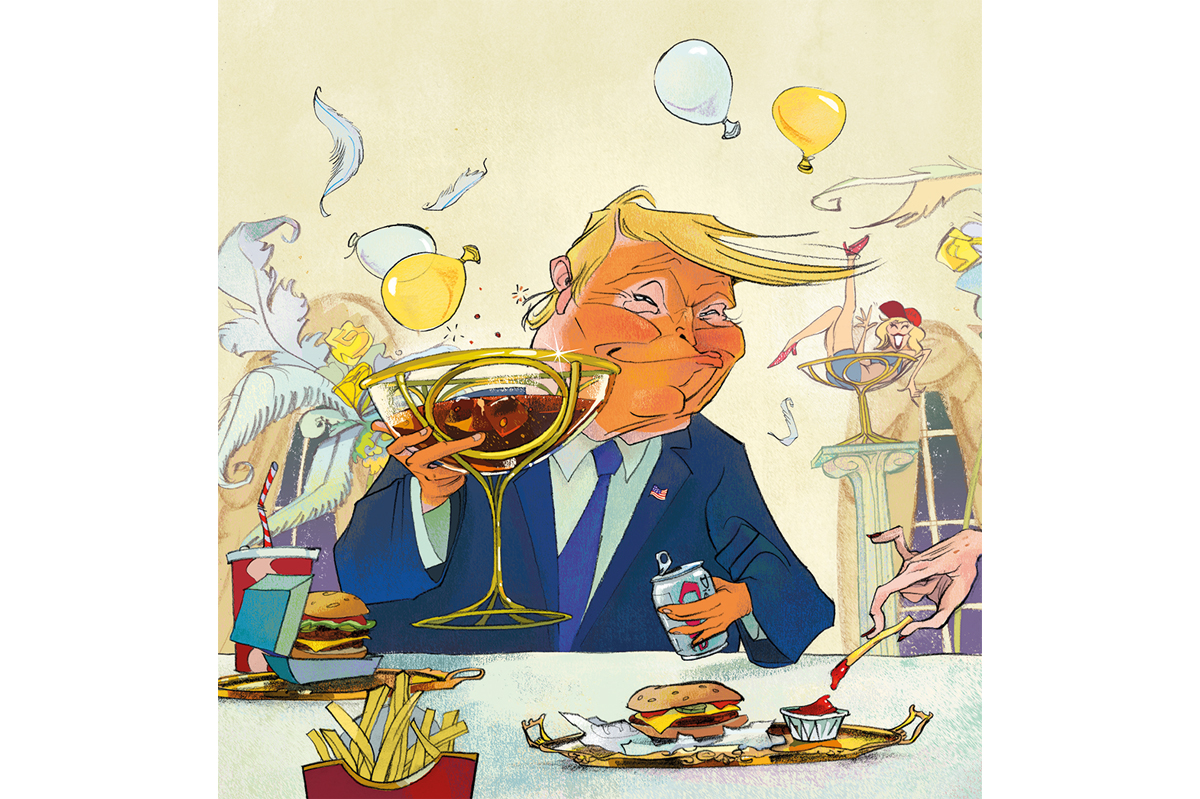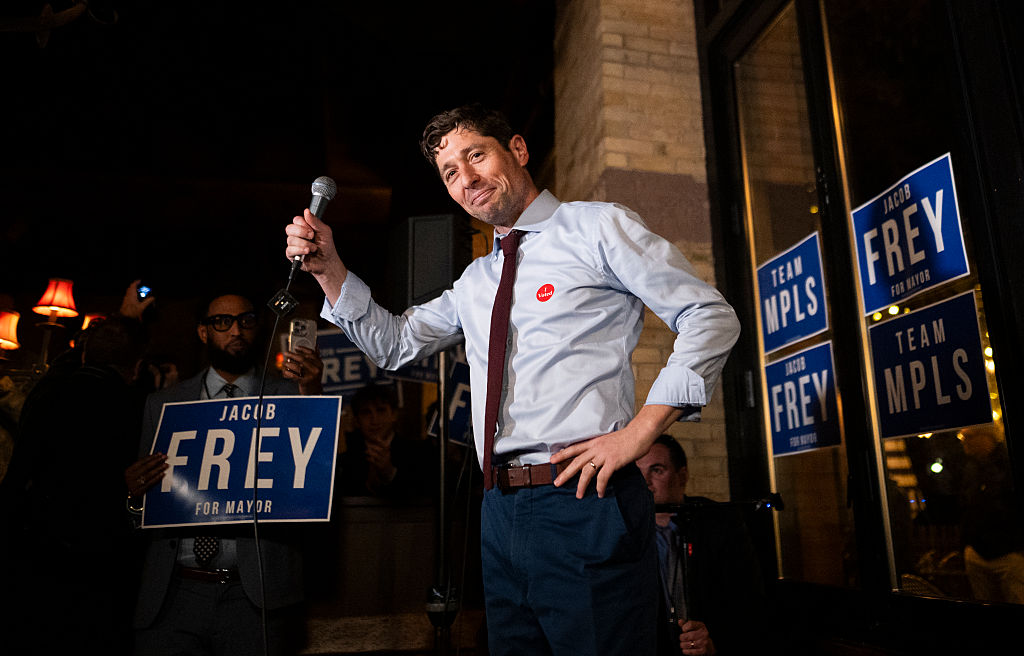“Why is the Democratic party viewed as toxic by so many? Even people inside the party acknowledge that,” journalist Tara Palmeri recently asked the Democratic Senator from Pennsylvania on her ominously titled Somebody’s Gotta Win podcast.
John Fetterman’s answer was blunt: “I think their primary currency was shaming and scolding and talking down to people and telling them, ‘Hey, I know better than you’ or ‘You’re dopes’ or ‘You are a bro’ or ‘You’re ignorant or you know it, don’t you’? You know, ‘How can you be this dumb?’ I can’t imagine it. And then, by the way, ‘They’re fascists, how can you vote for that?’ When you’re in a state like Pennsylvania, I know and I love people that voted for Trump and they’re not fascist.”
For decades, Democrats deployed the “our enemies are evil” rhetoric. They demonized “Bushitler.” They suggested John McCain was an unhinged warmonger. They framed Mitt Romney and Paul Ryan as people who wanted to push wheelchair-bound grandmas off cliffs.
The fundamental problem is that the Democrats have gone too far left for the median voter in the country
This was accepted as mere campaign hyperbole by most Americans, extreme language that could be cast aside as soon as the presidential opponent left the stage. Sure, Joe Biden may have said Romney was going to put black people back in chains. Nobody believed he meant it, though.
These days it’s very different. Trump’s return was heralded as a dangerous fascistic triumph, not just by those in remote corners of the internet or progressives who attempt to convince people of their opinions by writing messages on cardboard and carrying them in the streets (yes, still in 2025) but by major publications like the Atlantic and by members of Congress themselves.
Such language has a demonstrably negative social effect: a recent poll suggests that a large majority of self-identified liberals report ending relationships with those who support Donald Trump. And the “lost friends” problem is worst among the Democrats’ strongest voting cohort – college-educated women.
With this great coming apart, it’s no wonder Democrats are struggling to find a candidate for 2028 who can champion their values while bridging the political divide. The political wilderness has raised a host of critics, not just Fetterman but Barack Obama’s former chief of staff Rahm Emanuel, who described the Democratic brand to the Wall Street Journal as “toxic” and “weak and woke.”
As popular radio host Charlamagne tha God put it, “If [the Democrats] make it a class issue, they win this next election… but they’re afraid to do that because a lot of them are in the pockets of the billionaire class and the corporations, so they make it about identity politics.”
Billionaire Mark Cuban, sometimes touted as the left’s answer to Trump, had an equally gloomy prognosis: “If you gave the Democrats a dollar bill and said, ‘You can sell these for 50 cents,’ they would hire 50 people and then would not know how to sell the dollar bill for 50 cents… I’ve learned the Democrats can’t sell worth shit.”
The fundamental problem Democrats face is that they have gone too far left for the median voter in the country – one reason even cultural progressives such as Gavin Newsom, the California governor-turned-podcaster, have started sounding off against transgender athletes.
Unfortunately for the party, such moves spark immediate backlash from the loudest and most active members of its base, the same base that has elevated the likes of New York Representative Alexandria Ocasio-Cortez and Texas Representative Jasmine Crockett to the top of the very early presidential polls. They are not in the mood for moderation, ranking their progressive warrior maidens well ahead of more centrist choices such as Governors Wes Moore of Maryland and Andy Beshear of Kentucky.
The central question Democrats need to resolve is what image of the party they want to present as an alternative to the widely anticipated coronation of J.D. Vance on the Republican side. Even if Vance is not the eventual pick, the possibility of any 2028 nominee emerging from outside the Trump administration seems absurd.
On the Democratic side, the idea that anyone who was a member of the Biden administration has a shot at the champion role seems equally ridiculous – hampered not just by association with an unpopular presidency, but by the now all-too obvious lies told to the American people concerning Biden’s health and capacity to govern.
On Capitol Hill, Democrats are still dogged by their ever-present age problem. In the House, of the 20 oldest members elected last year, 16 were Democrats; 11 of the 14 senators over 75 are members of the party. For any Democrat going up against a 44-year-old father of young kids such as Vance in 2028, the contrast in vigor could be a central issue of the election – especially with Biden’s decrepitude in the immediate rearview.
Democrats have a way of stumbling across natural political talents when they seem down and out
Democrats will also have to navigate the challenges of race and gender in a party whose ongoing conversation seems dominated by such concerns. Kamala Harris’s running mate, Tim Walz, addressed the problem openly at – where else – Harvard’s Kennedy School: “I was on the ticket quite honestly, you know, [because] I could code talk to white guys watching football, fixing their truck, that I could put them at ease. I was the permission structure to say, look, you can do this and vote for this. And you look across those swing states, with the exception of Minnesota, we didn’t get enough of those votes.”
Of course, a smart coalition would court those votes far more effectively than Walz did with his bizarre behavior on the campaign trail. But that might end up offending the same people who dominate the party discourse. In a recent townhall, Representative. Crockett accused the party’s donors and leadership of already gearing up to back a white male candidate: “You know what? Like, let’s go look for the white boy who is the safest.”
But that may be what winning requires for a party that lost men, college educated or not, in the last election. Walz’s camouflage hat and “code talking” certainly weren’t enough. You can’t just manifest energy to win white male voters when the bulk of your party is devoted to the idea that it’s only privilege and past discrimination that give them value in American society.
For all that, Democrats have faced similar challenges before – and within Vance’s lifetime. No one could have expected Arkansas’s Bill Clinton to emerge from scandal and controversy as a centrist-minded, populist-coded nominee capable of taking on a patrician politician as established as George H.W. Bush was in 1991. The untested and youthful Obama skipping ahead to topple the Clinton machine in 2008 was just as surprising.
Democrats have a way of stumbling across natural political talents at key moments when they seem down and out. For 2028, the party must hope it can do so again – even if that seems impossible right now.
This article was originally published in The Spectator’s July 2025 World edition.























Leave a Reply